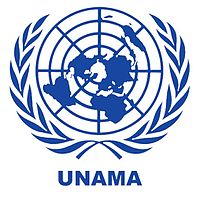UN Assistance Mission In Afghanistan (UNAMA):

The United Nations Assistance Mission in Afghanistan (UNAMA) recently held a meeting with the women activists and applauded their courage and affirmed that the UN will continue to stand by the people of Afghanistan.
- UNAMA was established on 28 March 2002 by United Nations Security Council Resolution 1401.
- It was basically established to assist the state and the people of Afghanistan in laying the foundations for sustainable peace and development.
- Its original mandate was to support the implementation of the Bonn Agreement (December 2001).
- Reviewed annually, this mandate has been altered over time to reflect the needs of the country.
- UNAMA is an integrated mission.
- This means that the Special Political Mission, all UN agencies, funds and programmes, work in a multidimensional and integrated manner to better assist Afghanistan according to nationally defined priorities.
Bonn Agreement:
- Bonn was a closed-door negotiation; participants were isolated, outside contact was limited during the negotiations, and there was no publicity until after the agreement was signed.
- The existing nominal head of state (Rabbani) was sidelined and did not participate, and the Taliban were completely excluded from the Bonn negotiations.
- The United Nations and several other international actors played major roles in pushing the negotiations forward, and the Bonn Agreement was blessed by the U.N. Security Council.
- The Bonn Agreement set an ambitious three-year political and administrative roadmap which was, by and large, followed:
- The Emergency Loya Jirga (grand council) of June 2002 established the transitional administration, a new Constitution was ratified in early 2004, and presidential and parliamentary elections were held in 2004 and 2005.
- The term ‘Special Political Mission’ encompasses entities that are not managed or directed by the Department of Political and Peacebuilding Affairs (DPPA) such as the Office of the Special Adviser on the Prevention of Genocide.




